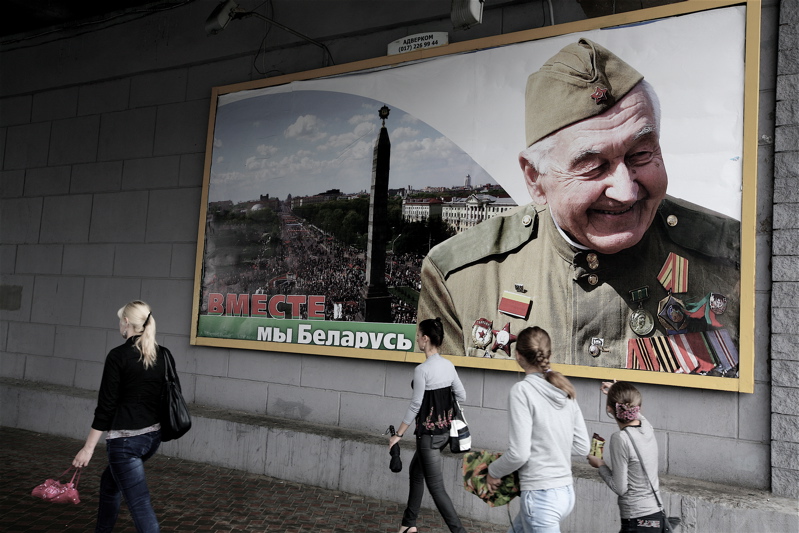
When protesters gathered here last Wednesday to clap their hands to show frustration with the neo-Soviet regime that has plunged the country into its worst economic crisis, state enforcers were already waiting for them.
Police arrested nearly 200 people in the capital alone, with many scarcely putting their hands together before they were hauled into unmarked police vehicles parked nearby. It was just a matter of time. For five straight weeks, organizers of the "Revolution Through Social Networks" posted the time and location of their nonviolent flash-mob rallies on a popular Russian social networking site, drawing more and more people into the street.
Rusia Shukiurova, a musician who witnessed several of her friends get dragged away by what most believe to be plainclothes police officers, says that people are "getting more frightened but at the same time they are growing more agitated" by the state's brutality, adding with a smile, "Civil activists always find new ways to resist."
Faced with a crackdown that is growing more aggressive, the Internet-savvy protesters are using an expanded array of tactics to foil authorities and break the momentum of what's often called Europe's last dictatorship.
With police now positioned at October Square – the touchstone of the youth-led movement – smaller groups are starting to meet at alternate locations around the city. These rallying points are coordinated on Twitter pages via cell phone and subject to change if under pressure from police, say those involved.
Flexibility is essential. Belarussian authorities have managed to temporarily shut down some opposition websites and have gone so far as to form fake Twitter accounts to spread misinformation about protest locations and police behavior, according to reports. And now increasingly, more low-tech means are being deployed to attract older generations to the movement.
Combo of high and low tech
Some activists have started filming police brutalities – including protesters being kicked on the ground by police officers in tracksuits – and making homemade DVDs of them. The faces of some offenders have then been printed on leaflets designed to resemble Wild West-style wanted posters.
The flyers and DVDs, in turn, are being distributed at night in the mailboxes of working class families who largely get their news from state-run media and have grown politically passive under Belarusian President Alexander Grigoryevich Lukashenko, the former collective farm manager who has ruled the country for the past 17 years.
According to one activist who asked that his name not be used out of fear of reprisal, some youth have even started going around park benches in the capital with cell phones and laptops showing videos of police abuse to the elderly. It appears to be working: "One woman started crying when she saw the footage," he says. "She said: 'There will be a war in this country, and I will be in the street with you!' "
Still, the generational divide persists.
Yuri Bandazhevsky, a prominent scientist and Lukashenko critic now based in Kiev, says that while social networking tools are helpful, they won't be a game-changer given the apathy of working classes who don't spend much time on the Internet.
In his view, only through economic pressures caused by sanctions from Western countries and less support from Russia, an ally that continues to supply Belarus with cheap oil, will members of his "sleeping" generation be roused to action.
Then again, he warned, "if the regime continues to behave in such an ugly way, it could backfire."
Stability ahead of freedom?
In recent months, symptoms of runaway inflation have led to rare rumblings of discontent among blue collar and public sector workers who have put stability ahead of social freedoms.
Angry motorists protesting in the capital last month against rising gas prices had to be dispersed with tear gas, while employees at the main tractor plant refused to work for several hours because of the falling value of wages.
Trade unions, a long time bedrock of support for President Lukashenka, have warned of growing tensions. Economists here say that these are poised to worsen as imports dry up, basic goods remain in short supply, and purchasing power is further squeezed. Although the government was forced to devalue the ruble in May by 36 percent against the dollar, its value on the black market is far less.
Stories of excessive police abuse are piling up. On Monday, a leading opposition media site, charter97.org, reported that a pregnant woman who was arrested during the July 3 rally allegedly lost her baby due to rough treatment at the hands of security agents. The claim could not be independently confirmed. This comes a week after a one-armed man was found guilty of clapping his hands at a public protest and fined the equivalent of $200.




